FORT INDIANTOWN GAP, Pa. — The Pennsylvania National Guard is the first National Guard in the country to field the new Tactical Dismounted Electronic Warfare and Signals Intelligence (TDEWS) system.
Eight Pennsylvania National Guard Soldiers trained at Fort Indiantown Gap March 13-17 on the TDEWS, which filled a significant gap in the training of Soldiers in the intelligence Military Occupational Specialties. Signals Intelligence advisers from the Army National Guard Technical Control and Analysis Element and the Intelligence and Electronic Warfare Program of the Mission Training Complex facilitated the training.
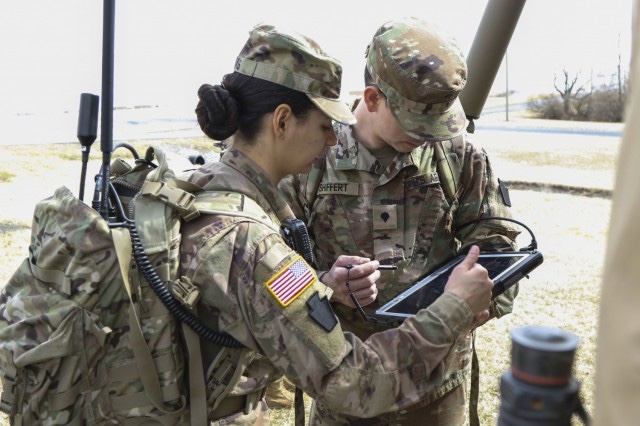
“This system adds a huge amount of value to our intelligence capabilities,” said Warrant Officer Trevor Burgess, a signals intelligence analysis technician with 28th Infantry Division, the Pennsylvania Guard’s senior SIGINT technician. “Soldiers train for six months to acquire the MOS, then when they get to their units here in Pennsylvania, they didn’t have this equipment to train on and the support of full-time subject matter experts that the Army National Guard G2 provides, so this does improve our intelligence capability.”
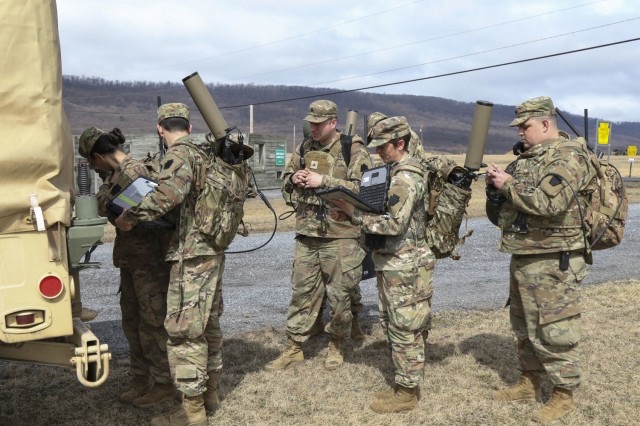
The TDEWS is a dedicated, all-weather, tactical electronic warfare system providing force protection and situational awareness to commanders at any echelon.
“We went from classroom instruction to hands-on setting up and tearing down the system over and over, to using it in a controlled dismounted environment, and then in the past two days, we’ve been able to pack it up in our special man packs we were issued for the system and actually come out here and work with trainers who built situational training exercise lanes for us to train on,” said Sgt. Emily Rivas, a cryptologic linguist with the 103rd Brigade Engineer Battalion, 56th Stryker Brigade Combat Team, 28th Infantry Division.
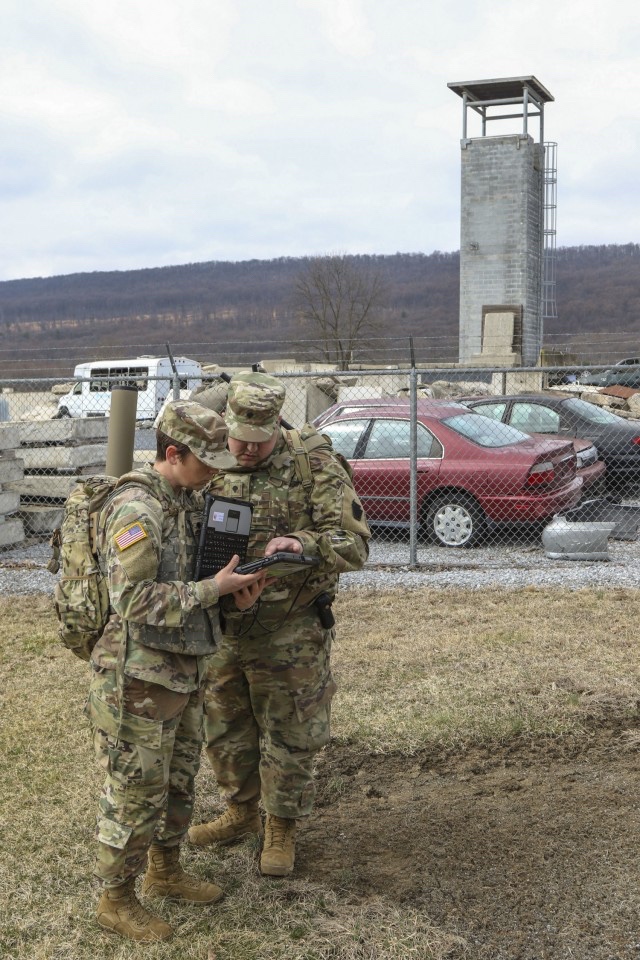
The 56th SBCT will be doing a rotation at the National Training Center at Fort Irwin, California, this summer. The training will ensure these Soldiers can employ this new equipment during the brigade’s validation exercise and can execute their mission as they would on the battlefield, Burgess said.
“The thing with this system that makes it so nice for our training is that we’re able to just fire it up and use it whenever we want at any training site,” said Rivas. The previous system required a lot of coordination and approvals, which became cumbersome.
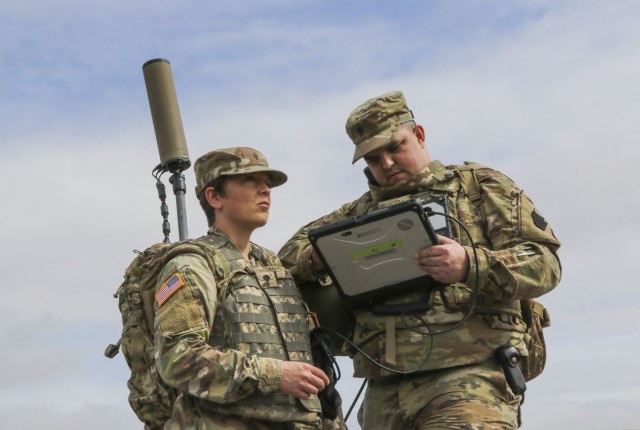
During the recent training at Fort Indiantown Gap, the eight Soldiers were divided into two-person teams to locate trainers posing as enemy forces at a rubble pile. Rivas’ team was the first to locate their target.
“We were able to lock it down really fast, locating the enemy really quickly and let the other teams know where they were and how they were communicating,” she said. “It felt really good to actually be able to see the system working and how it all comes together.”
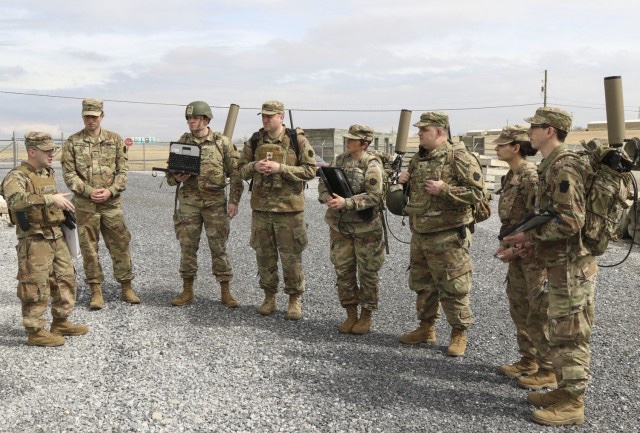
“As of right now, I’m feeling very good about it,” said Sgt. Joe Falcone, a cryptologic linguist with the 103rd Brigade Engineer Battalion, 56th Stryker Brigade Combat Team, 28th Infantry Division. “We have a total of eight days so far training on this equipment, just due to the nature of being in the National Guard and that it was only fielded to us at the beginning of January, but every single day I feel leaps and bounds better.”
Falcone said he didn’t feel as comfortable with the device earlier in the week, but this event significantly improved his confidence in advance of the upcoming rotation.
“The NTC rotation will allow the Soldiers to actually utilize the skills that they train hard in, and use that to improve the intelligence footprint, the intelligence picture and make the overall mission a success,” said Burgess.
By SSG Zane Craig, Joint Force Headquarters – Pennsylvania National Guard

